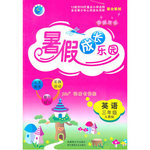题目内容
完形填空 (本大题有10小题,每小题1分,共10分)
通读下面短文,掌握其大意,然后在各小题所给的四个选项中,选出一个最佳答案。
The winter vacation is coming. How do you make your vacation from your school life? Here is some for you. Maybe it can help you learn while you have fun!
You can go to visit There you can see a lot of interesting and valuable things, such as works of art or historical items. That will help you learn more history your country.
Reading in the is also a good choice. You can find different kinds of books there. You can read lots of English storybooks. It is for your English learning.
Traveling with your is also exciting! Also, you can do many outdoor activities, such as climbing the mountain, going to the beach. But you should always tell your parents doing any of these things.
It is a good idea to make a vacation book. You can write in the vacation book: what you want to do for your vacation and what you see during your vacation. You can also draw something you like most on your vacation to make it more interesting. When a new term begins, you can it with you to share your experience with your friends.
通读下面短文,掌握其大意,然后在各小题所给的四个选项中,选出一个最佳答案。
The winter vacation is coming. How do you make your vacation from your school life? Here is some for you. Maybe it can help you learn while you have fun!
You can go to visit There you can see a lot of interesting and valuable things, such as works of art or historical items. That will help you learn more history your country.
Reading in the is also a good choice. You can find different kinds of books there. You can read lots of English storybooks. It is for your English learning.
Traveling with your is also exciting! Also, you can do many outdoor activities, such as climbing the mountain, going to the beach. But you should always tell your parents doing any of these things.
It is a good idea to make a vacation book. You can write in the vacation book: what you want to do for your vacation and what you see during your vacation. You can also draw something you like most on your vacation to make it more interesting. When a new term begins, you can it with you to share your experience with your friends.
| 小题1: |
|
| 小题2: |
|
| 小题3: |
|
| 小题4: |
|
| 小题5: |
|
| 小题6: |
|
| 小题7: |
|
| 小题8: |
|
| 小题9: |
|
| 小题10: |
|
小题1:B
小题2:B
小题3:C
小题4:B
小题5:B
小题6:A
小题7:A
小题8:C
小题9:B
小题10:B
试题分析:段落大意:这篇短文作者主要针对假期提出了几点建议,我们可以去参观博物馆,可以图书馆看书,也可以和朋友一起去旅行。并且可以写一本有关假期的书,开学后和朋友们分享自己的经历。
小题1:考查语境理解及形容词。same 相同的;different不同的;easy轻松的,容易的;hard努力的,困难的。结合语境可知此处指的是,让你的假期生活不同于学校生活。故选B。
小题2:考查语境理解及名词。Reason原因理由;advice 建议,忠告;answer答案;problem问题,难题。联系后一句描述,可知此处指的是,这儿有一些建议给你。故选B。
小题3:考查语境理解及名词。Stores商店,仓库;hospitals医院;museums博物馆;places 地方;联系后一句描述,可知此处指的是,你可以去参观博物馆。故选C。
小题4:考查语境理解及介词。on 在上面,在具体某一天;about关于,大约;in在一个时间,空间范围;at在时间,空间的一点。结合语境可知此处指的是,关于你的国家的历史。故选B。
小题5:考查语境理解及名词。Home家;library图书馆;school学校;shop 商店。结合语境可知此处指的是,在图书馆读书也是一个不错的选择。故选B。
小题6:考查语境理解及形容词。Helpful有帮助的;bad坏的,糟糕的;easy轻松的,容易的;difficult 困难的。结合语境可知此处指的是,对你的英语学习有帮助。故选A。
小题7:考查语境理解及名词。Friends朋友;parents 父母;mother 母亲;father父亲。联系本段描述,可知此处指的是和朋友出去旅行。故选A。
小题8:考查语境理解及连词。After在……之后;when 当……时;before在……之前,以免;because 因为。结合语境可知此处指的是,在做这些事情之前,告诉你的父母。故选C。
小题9:考查语境理解及不定代词。nothing 什么也没有;anything任何事情;something一些事情;another thing 另一件事情。联系后两句描述,可知此处指的是,你可以做在这本书里面写任何东西。故选B。
小题10:考查语境理解及动词。Bring带来;take拿,取,接受;talk D. tell 告诉,讲述。结合语境可知此处指的是,你可以带上它和你的朋友一起分享你的经历。故选B。

练习册系列答案
 假期作业暑假成长乐园新疆青少年出版社系列答案
假期作业暑假成长乐园新疆青少年出版社系列答案
相关题目